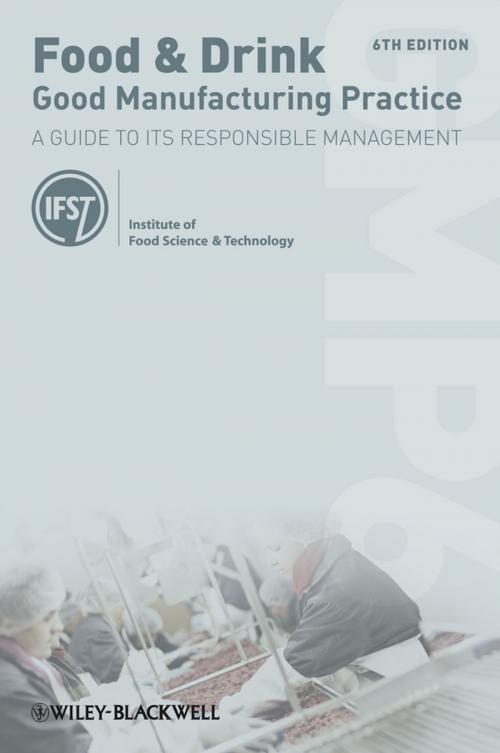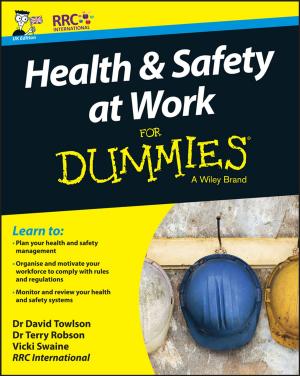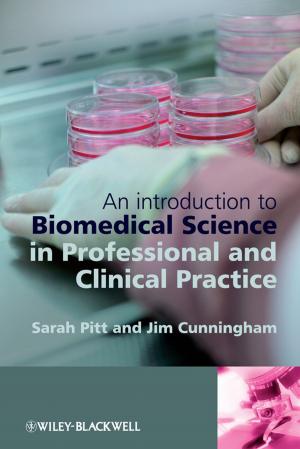Food and Drink - Good Manufacturing Practice
A Guide to its Responsible Management
Nonfiction, Science & Nature, Technology, Food Industry & Science| Author: | Institute of Food Science and Technology, Louise Manning | ISBN: | 9781118318232 |
| Publisher: | Wiley | Publication: | November 26, 2012 |
| Imprint: | Wiley-Blackwell | Language: | English |
| Author: | Institute of Food Science and Technology, Louise Manning |
| ISBN: | 9781118318232 |
| Publisher: | Wiley |
| Publication: | November 26, 2012 |
| Imprint: | Wiley-Blackwell |
| Language: | English |
Good Manufacturing Practice (GMP) refers to advice and guidance put in place to outline the aspects of production and testing that can impact the quality and safety of a product. In the case of food and drink, GMP is aimed at ensuring that products are safe for the consumer and are consistently manufactured to a quality appropriate to their intended use. Manufacturers have for several years been driving towards such goals as Total Quality Management (TQM), lean manufacturing and sustainability – GMP is bound up with these issues. The ever-increasing interest amongst consumers, retailers and enforcement authorities in the conditions and practices in food manufacture and distribution, increases the need for the food manufacturer to operate within clearly defined policies such as those laid down in GMP. The ability to demonstrate that Good Manufacturing Practice has been fully and effectively implemented could, in the event of a consumer complaint or a legal action, reduce the manufacturer’s liability and protect them from prosecution.
First launched in 1986, IFST’s Good Manufacturing Practice Guide has been widely recognized as an indispensable reference work for food scientists and technologists. It sets out to ensure that food manufacturing processes deliver products that are uniform in quality, free from defects and contamination, and as safe as it is humanly possible to make them. This 6th edition has been completely revised and updated to include all the latest standards and guidance, especially with regard to legislation-driven areas such as HACCP.
The Guide is a must have for anyone in a managerial or technical capacity concerned with the manufacture, storage and distribution of food and drink. It is also a valuable reference for food education, training and for those involved in food safety and enforcement. Food scientists in academic and industry environments will value its precision, and policy makers and regulatory organizations will find it an indispensable guide to an important and multifaceted area.
About IFST
IFST is the leading independent qualifying body for food professionals in Europe and the only professional body in the UK concerned with all aspects of food science and technology. IFST members are drawn from all over the world and from all ages and backgrounds, including industry (manufacturing, retailing and food service), universities and schools, government, research and development, quality assurance and food law enforcement. IFST qualifications are internationally recognised as a sign of proficiency and integrity.
Good Manufacturing Practice (GMP) refers to advice and guidance put in place to outline the aspects of production and testing that can impact the quality and safety of a product. In the case of food and drink, GMP is aimed at ensuring that products are safe for the consumer and are consistently manufactured to a quality appropriate to their intended use. Manufacturers have for several years been driving towards such goals as Total Quality Management (TQM), lean manufacturing and sustainability – GMP is bound up with these issues. The ever-increasing interest amongst consumers, retailers and enforcement authorities in the conditions and practices in food manufacture and distribution, increases the need for the food manufacturer to operate within clearly defined policies such as those laid down in GMP. The ability to demonstrate that Good Manufacturing Practice has been fully and effectively implemented could, in the event of a consumer complaint or a legal action, reduce the manufacturer’s liability and protect them from prosecution.
First launched in 1986, IFST’s Good Manufacturing Practice Guide has been widely recognized as an indispensable reference work for food scientists and technologists. It sets out to ensure that food manufacturing processes deliver products that are uniform in quality, free from defects and contamination, and as safe as it is humanly possible to make them. This 6th edition has been completely revised and updated to include all the latest standards and guidance, especially with regard to legislation-driven areas such as HACCP.
The Guide is a must have for anyone in a managerial or technical capacity concerned with the manufacture, storage and distribution of food and drink. It is also a valuable reference for food education, training and for those involved in food safety and enforcement. Food scientists in academic and industry environments will value its precision, and policy makers and regulatory organizations will find it an indispensable guide to an important and multifaceted area.
About IFST
IFST is the leading independent qualifying body for food professionals in Europe and the only professional body in the UK concerned with all aspects of food science and technology. IFST members are drawn from all over the world and from all ages and backgrounds, including industry (manufacturing, retailing and food service), universities and schools, government, research and development, quality assurance and food law enforcement. IFST qualifications are internationally recognised as a sign of proficiency and integrity.















